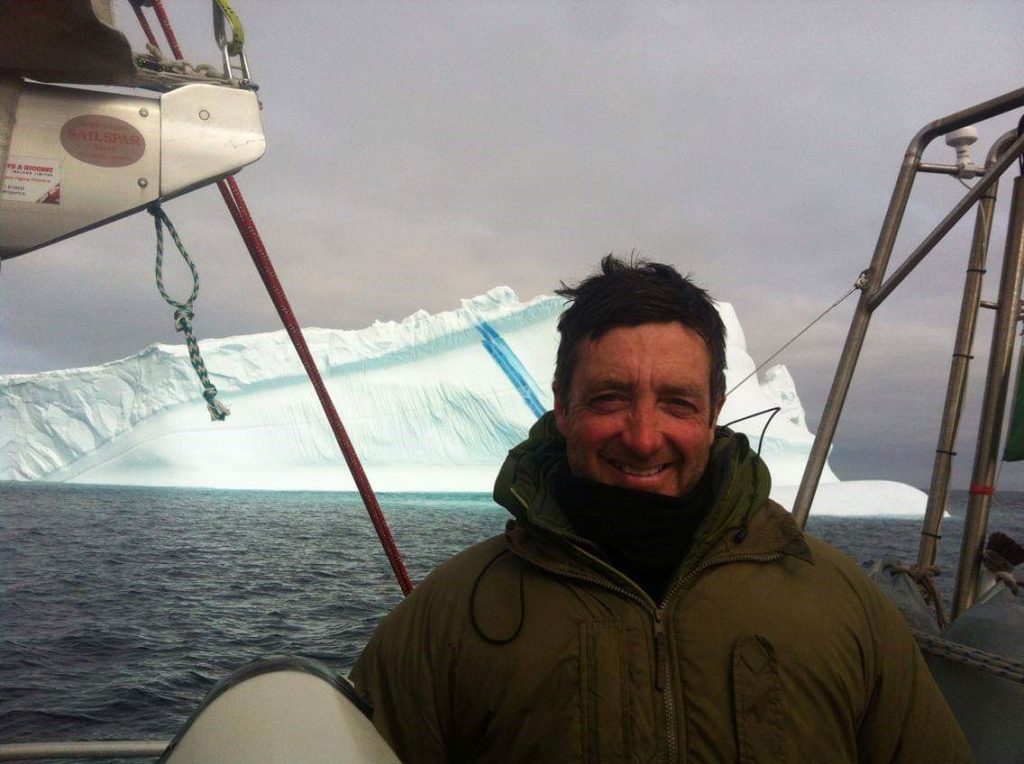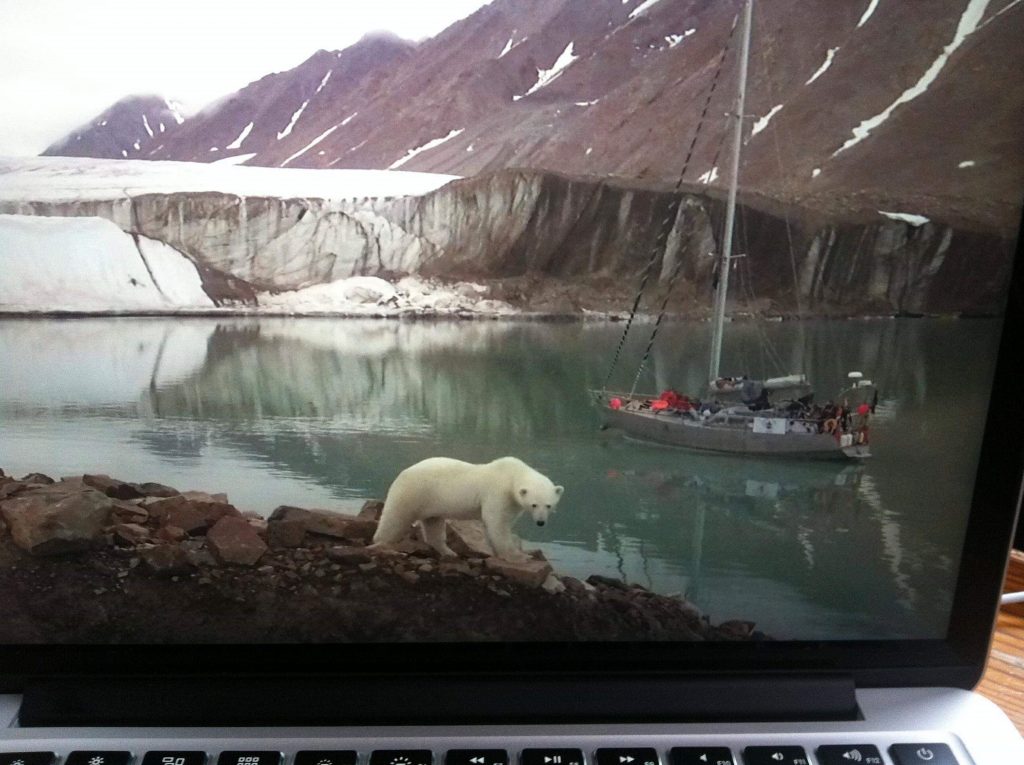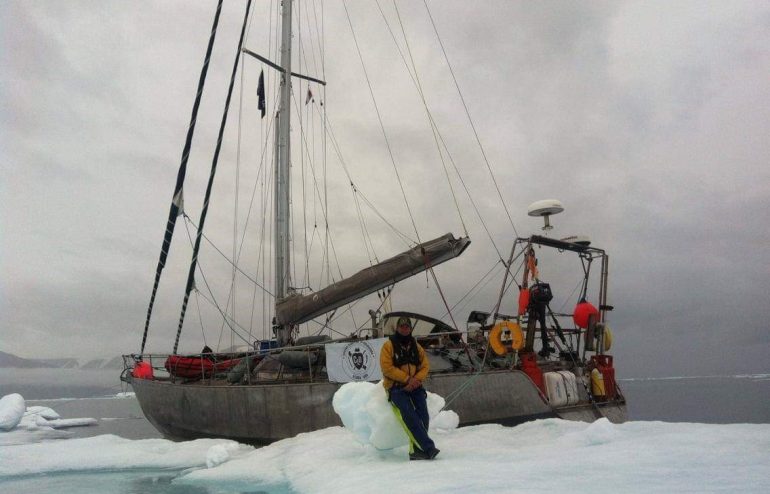Where Are They Now: Mike Stewart
Mike Stewart is a delivery captain and former SAS officer who lives life to the fullest and at the world’s most extreme edges. With over 30,000nm under his belt, Mike specializes in high-risk sailing in extreme and unforgiving environments. However, he finds himself especially drawn to the icy seascapes of the Arctic, whether it’s taking scientists on an award-winning expedition to East Greenland, or participating in The Polar Ice Challenge, which raised awareness for climate change through completing the never-before-achieved circumnavigation of the Arctic in 2016.
Mike talked to us about the importance of risk assessment, cowboys, formula one, and how Reliance gave him an outlet for his need for the extreme.
What are you up to currently? Tell me a little bit about what kind of work you do now.
Professional Captain of long-range expedition vessel specializing in Arctic climbing, extended remote treks and the like. Mainly for experienced clients who want something different and extreme. High-risk sailing, limited chart support, very little logistics support, inclement unforgiving environment and weather ice negotiation, etc. etc. East Greenland Arctic mainly. Also, freelance deliveries, and security professional in high-risk areas.
How did you first meet Nick, or start working for Reliance?
Around 5 years ago, I took on a specialized delivery that needed my skill set. Nick was very supportive and professional. He has vast experience and guided and supported me to the successful completion of the task.
How long did you work for Reliance, and what work did you get up to?
Deliveries of all types – mainly the more difficult or challenging ones, including repossession of occupied yachts and recovery. Anything a bit different and challenging. Still on the books and want to remain that way. Probably never stop working for Reliance they are probably the best.
Do you have any highlights?
That first job! Bank repo of yacht physically opposed by clients and captain. The yacht was successfully returned to the client in another country; it was undamaged and safely alongside in the time frame we set – a challenging job.

Why do you think you are drawn to these ‘challenging’, high-risk opportunities, is it one of the reasons you got into sailing in the first place?
Challenging, well… I was an officer in the SAS, in a prior existence. After a lifetime in that area, I now look for difficult, hard, horrible jobs that no one else will take because it reminds me of my service; you get used to doing that hard stuff – achieving the mission and getting the job done – it’s kind of ingrained, anything else is a bit boring, to be honest. It’s kind of like being a formula 1 race driver then having to drive the number 45 bus… just doesn’t cut the mustard. Lots of our guys find life after their service difficult and the coping mechanisms can be destructive, I just stay busy and hard at it.
In June 2016 you were the skipper on the 4th leg of The Polar Ice Challenge, aiming to raise awareness about climate change by circumnavigating the Arctic for the first time in history, what was it like to work on such a unique project?
The Polar Ocean Challenge was right up my street – a very late crossing of the Atlantic, enormous seas, 9 meters at one stage, underage kid on board and inexperienced crew – the exhibition leader, Sir David, was a good support at home, and we had fun and did the job – everyone home safe. That’s the kind of job I like, no one else would take it on, but I’m used to assessing the risk and putting in place proper safeguards and doing the job. I’m willing to take on the risks because I have the confidence to do the task, and I’m willing to take responsibility…. these days it’s a rare thing, I think. I’m definitely not a cowboy, most of the risk mitigation is backed up by detailed planning and preparation. And some luck, but you make your own luck.
Did you ever feel a touch of irony about the Challenge? It was an incredible feat to have achieved, circumnavigating the Arctic, but in turn, achieving it ultimately meant that climate change was real and incredibly serious. What were your thoughts at the time?
Yes, the arctic is melting which meant much more ice was actually in the water, ice that was broken off bergs etc. and floating – very dangerous and unstable – so it was a bit dodgy. For sure there is a big melt on!
We are going back there in 2020, and we have just bought a new boat. I’ll fly the Reliance flag this year for you. We will be doing another bigger, better polar ocean challenge to East Greenland.

Thank you, we would be honoured! What skills have you brought forward into the current work that you developed while working for Reliance?
Professionalism, understanding the importance of procedures, and SOP [Standards of Procedure], looking after the client, some difficult clients, looking after the vessel especially new vessels, which need a particular skill set. Dealing with unruly or less than competent crew; relying on Nick to deal with client issues when at sea – very helpful and responsive – Nick was always there for you if needed.
How did working for Reliance help you get to where you are now?
Developing client base, contacts, and mentoring from both Nick and other skippers. The dynamic and communications between the office and crew work well, Nick has great experience and people skills. Always there for advice or will direct you to sound advice from other staff captains. Nick takes the time to look after his crew and captains, very good.
What influence did Reliance have on your career?
Highly Positive. Provided Contacts and credibility. I felt supported by Reliance, no matter how challenging the role given to me, they were there even when things did not go to plan – which sometimes happens. Very supportive and professional. Back office functions well and no issues with administration. Professional is the word that comes to mind. Good leadership. Good bloke.
For more of the Where Are They Now series, check out interviews with Dùghall Maclachlainn and Conor Fogerty

